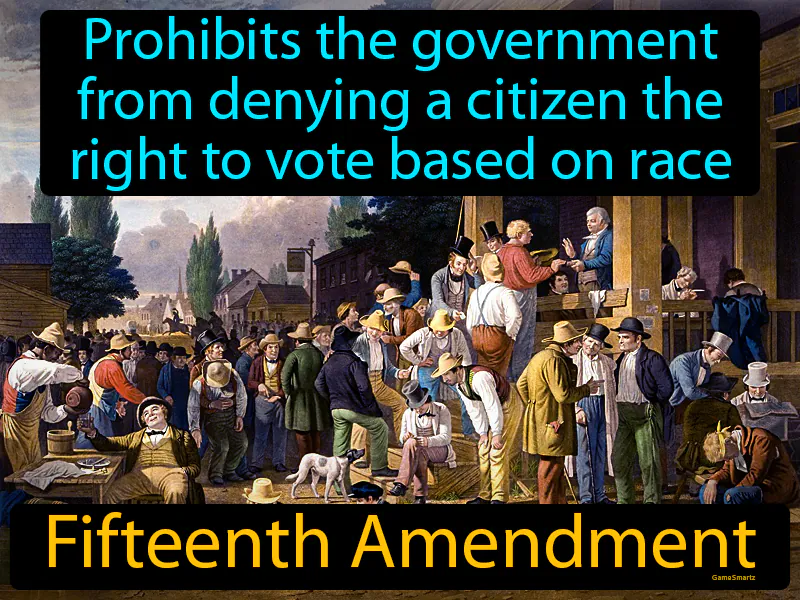Fifteenth Amendment

The Fifteenth Amendment, ratified in 1870, was a major milestone in American history because it aimed to secure voting rights for African American men after the Civil War. This was important because, despite the end of slavery, many states used discriminatory practices to prevent Black citizens from voting. The amendment sought to address these injustices by legally prohibiting racial discrimination in voting. Today, the Fifteenth Amendment remains relevant as it underpins ongoing efforts to ensure fair access to voting for all racial groups. For example, when people notice unfair voter ID laws that make it harder for certain communities to vote, they can challenge these laws by citing the Fifteenth Amendment, highlighting its continued importance in protecting voting rights.
Practice Version

Fifteenth Amendment: Prohibits the government from denying a citizen the right to vote based on race or color. Fifteenth Amendment. The Fifteenth Amendment is a historic law that granted African American men the right to vote in the United States.